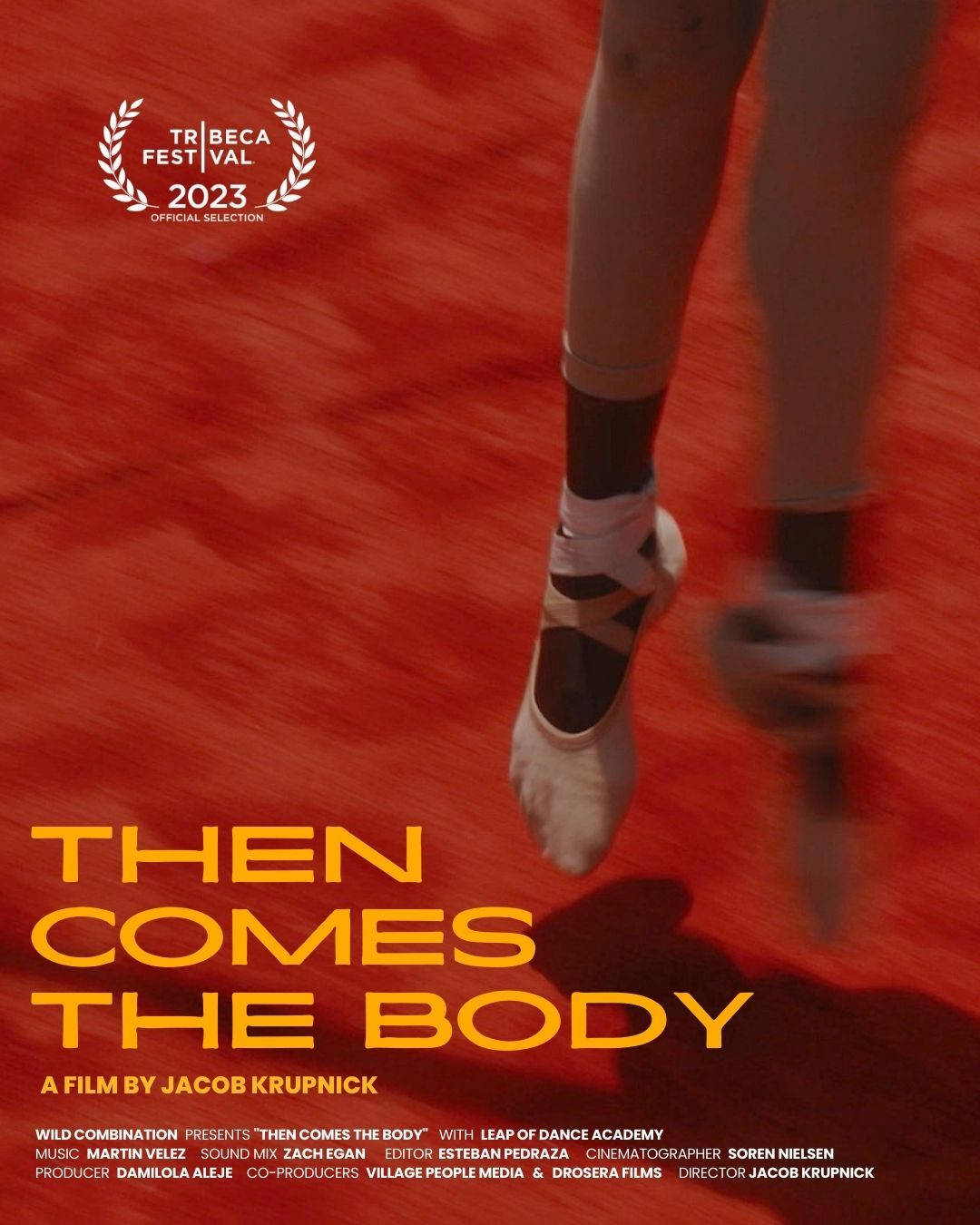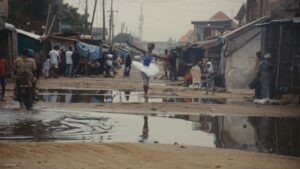
Oscar Qualifying Short Film Review “Then Comes The Body”
WATCH THE TRAILER HERE
First, the Recap:
“Nothing good comes from…” or possibly “No one ever remembers…”. Why do we as people have such a difficult time believing that the places from which greatness could manifest from cannot just be ANYWHERE as opposed to all those “pre-established” and/or “proven” locations in this massive world that we’re “used to” producing the prodigies, brilliant minds, and highly skilled individuals? To have such a narrow-minded viewpoint is honestly sad, even deeply damaging, to those on the receiving end of such notions, especially when THEY COME from one of those maligned places. Lagos, Nigeria, 2020, and a local ballet teacher named Daniel Ajala chooses to post a video of his students dancing in the rain. It explodes and suddenly, this village in the boondocks, unheralded, mostly unheard of, suddenly becomes a worldwide hotspot and the beginnings of what most would have dismissed as totally inconceivable starts to shine and impact the world of ballet forever. This is their story, and it defies all doubt.
Next, my Mind:
If you’re looking for definitive proof that not only can someone’s talent or potential have no limits but that it can be birthed from ANYWHERE regardless of what things appear to be on the surface as indicated above (and was worth stating again), then stop seeking and take in a viewing of this inspirational, skepticism-crushing, keenly applause-worthy 14-minute documentary short film from director Jacob Krupnick that originally had its World Premiere in-person screening at the 2023 Tribeca Film Festival and has now since garnered additional notice and become an officially qualified effort for the upcoming Oscars. Folks, this is the style of real life story that, as I often say about documentary efforts, is NECESSARY in today’s turbulent world in order to allow us to have a realization there ARE actual POSITIVE things happening and that there are the those certain people that are making it happen to change the world in whatever ways they’re able–especially to CHANGE LIVES. This film IS all of this.
The project finds its focus on a small village in Lagos, Nigeria and the one man who, after having discovered his muse via an American film then following it up with quite an avant-garde (albeit totally reflective of our modern age) means to learn the art of ballet, chooses to do what appeared to be an improbable move–open a ballet school called Leap Of Dance. Ajala then decided that all who were interested in said school would be able to come and join at no charge, because in his mind, there should be ZERO reason for someone not to be able to follow their passion. Soon, it not only manifests into a global sensation thanks to a random video Ajala shares, but some of his star students begin to get scholarship offers from prestigious schools around the world and the concept of emerging aptness and growing expertise in the arena of ballet coming from some little known place in the world is now an actuality no one can avoid or deny.
Yet, even with these accolades and achievements being showcased, Ajala has still had to endure such notions being thrown at him as “ballet is indecent, unscriptural, very ungodly, not for Christians” or being told that “ballet is not meant for you” (meaning the harsh and completely awful specter of racism/discrimination due to color) and to “do your own dances”. But, this is precisely where Ajala gains even more INCENTIVE to push through, keep Leap of Dance open, teaching with all his ability, and wholeheartedly embracing that “you don’t have to have what those others do. First comes the HEART, then comes the body”. It’s a creed that motivates Ajala to USE the sentiments that are critical towards him, his school, and his students to TAKE the NEXT steps forward, and the ultimate satisfaction that he reaps is getting to personally watch the growth and hunger rise up and outwards from those under his tutelage, seeing some even reach international acclaim. THERE is the success and gratification Ajala gets to appreciate for doing what others keep trying to say he can’t.
Besides the narrations by Ajala over the majority of the film, what also stands out with fervent, uplifting significance are the interviews with two of his most respected and successful proteges, 21-year old Olamide Olawale and 13-year old Precious Duru, as each provides such a fantastically endearing and dynamic recounting of what Ajala and Leap of Dance has not only meant to them, but the opportunities that it all provided that might not have ever happened if none of Ajala’s endeavors come to pass. Listening to Olawale expressing her utter joy of dance and how it so deeply impacts her, having turned pro at only 17, and the subsequent chances to enhance her skills even in the face of haters and dissenters is an impassioned call to those out there who think they cannot do this or have dreams to and thought there wouldn’t be the path open to pursue it. Likewise, Duru, who literally ran 40 minutes from her home to Leap of Dance in order to learn is leaving home for a chance in Belgium thanks to scholarship offers received and accepted. Her drive and dedication to put herself out to the world so young is equally stirring and meaningful, a further testament to what Ajala instills in his wards.
As one might expect, seeing some of these students leave remains difficult, but Ajala’s aim is to encourage each and every one to find their own unique voice, and that is what drives him as well. Visually, the film is very straightforward, as most documentaries are, but what I particulary found wonderfully, creatively artistic here were some specific moments of dance involving Olawale and Duru that speak volumes to not just the sheer beauty of ballet and its intricate movement, but also to the necessity of this dance medium to have a larger sense of presence and acknowledgement in that area of the world, at least this critic felt that, more so when appreciating the literal venues these sequences are filmed at. It’s a statement to those communities AND to the greater world at large that “WE ARE HERE, WE ARE ABLE, and WE ARE NOT AFRAID”. It just places that additional layer of authenticity and, ideally, thought-provoking air to the film that will resonate within us as human beings.
So, in total, “Then Comes The Body” is an affecting representation of a place, a culture, a pursuit, a passion, and the undying, formidable force that is strength of will and intent emanating from “the last place on Earth you’d expect” and would otherwise be forgotten, which is thankfully NOT the case here. More importantly, it is about what all of us need to be about when it comes to our interactions with everyone around us who co-habit this world–MAKE A DIFFERENCE by TRANSFORMING other’s lives. It will be a much better place with more Daniel Ajala’s and Leap of Dance studios around to see these chances given to those who might otherwise never be heard of.
STAR RATING (out of 5):
As always, this is all for your consideration and comment. Until next time, thank you for reading!





